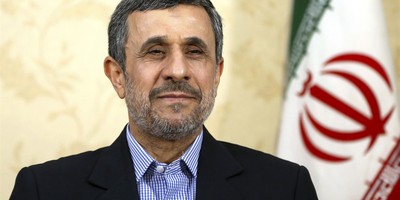The color of God might seem a little bluer after last year's election, in which "values voters" shifted to Democrat Barack Obama and away from the Republican Party.
“One election does not a cultural-shift make,” said Burns Strider, the Democrat point man on faith. “But what that election did was provide a road map forward for the Democratic Party and people of faith.

“With a Republican Party that remains confused about who it is, there is a whole lot of gain ahead of us than there is behind us.”
Obama won over 43 percent of voters who attend religious services regularly, contrasted with the 39 percent who supported John Kerry four years earlier, according to exit polling by the Pew Research Center on Religion and Public Life.
Strider, named one of the most influential Democrats on faith issues by Religion News Service, became the Democrats’ go-to guy on God in House Speaker Nancy Pelosi’s office in 2004. After reaching out to values-voters in the 2006 mid-term election, he went to work for Sen. Hillary Clinton’s presidential campaign.
The Mississippi native did not work for Obama directly but did work for Matthew 25, a political action committee supporting Obama’s candidacy among religious voters.
In 2008, "life" issues such as abortion and embryonic stem-cell research took a backseat for 54 percent of Catholic voters, as they decidedly backed Obama; Southern Baptists, Methodists and many evangelicals also shifted their votes towards the president.
“Re-prioritizing issues is another way to look at where the life issue falls," Strider said. "President Obama has done nothing that he did not campaign on."
Life issues and the federal funding of them have been taken out by the pen of President Obama with two consecutive executive orders.
Recommended
The first came on the 36th anniversary of the Supreme Court’s landmark Roe v. Wade ruling that legalized abortion in all 50 states. Obama lifted the ban on federal dollars for non-governmental organizations that discuss or provide abortions overseas.
The second executive order last week lifted the ban on federal funding of embryonic stem cell research.
“He is a center-left politician, that has become increasing clear,” said famed Democratic strategist Dane Strother, who thinks those policies may haunt Democrats if the economy eases as the overriding issue in the 2010 mid-terms.
Until last year, Republicans owned religious voters. “That changed under their disillusionment with Bush,” according to Strother.
Social conservatism became part of the Republican Party under Ronald Reagan, when the party's abortion plank was altered to be strongly pro-life at the 1980 Republican National Convention.
“In addition, as the Republicans gained more ground in the South during the ’80s and ’90s, picking up House, Senate and gubernatorial contests, social conservatives became a larger constituency in the GOP,” said Villanova University political scientist Lara Brown.
As "liberal" (meaning socially libertarian but fiscally conservative) Rockefeller Republicans moved into the Democrats’ column, the GOP moved further right because not many social moderates were left to pull the party back to the middle.
George W. Bush capitalized on these 20-year trends in 2004, as he and Republican strategist Karl Rove courted Christian conservatives to win a second term.
Obama the candidate never pretended to be anything he wasn’t on abortion. He didn’t need to: It really was “the economy, stupid” (Bill Clinton’s old campaign adage) in this election. After Lehman Brothers failed, the U.S. House failed to pass the first bank bailout bill and the rest of the economy tanked, voters put their faith in Obama.
“It just changed everything,” Villanova’s Brown said. “Plus, Obama worked to present himself as a religious person. ... That made religious conservatives feel more comfortable with him.”
She, Strider and Strother all agree that, for Republicans, social conservatism is not dead; it’s just on the back burner until the economy – the most pressing issue for most voters – gets back on track.
“As you see Obama become the urban politician that he is, his actions are going to cause social conservatives to get fired up again,” Strother warned.
“They will circle the wagons and the ‘born again’ churches will become more the force for the Republican Party again, the way they were with Bush.”
That’s the law of action and reaction: When belief is powerful, actions based on opposite beliefs will produce strong reactions.
























Join the conversation as a VIP Member